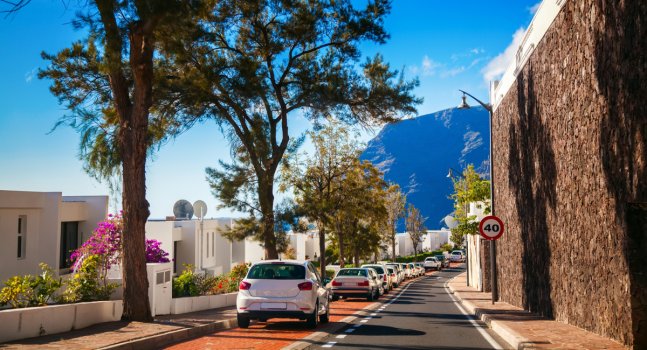Fastprk: Efficiency and Enforcement
In Barcelona, Spain, the city deployed a parking system developed by a company called Worldsensing. The system is known as Fastprk. It’s a real-time data collection system that gathers information about the availability of local parking and transmits it to the driver who has the Fastprk application on his mobile phone device. Instead of trolling through the parking structure looking for a green light, the information is streamed direct to the mobile phone through the Fastprk app.
It will then tell the person that there is a spot open on the third floor of a particular lot; or eventually, even that there is a street-level spot open on the next block over. The benefits of Fastprk are obvious. It’ll reduce congestion in central Barcelona, and in the long run, reduce carbon dioxide emissions—and aid in the fight of global warming.
With Fastprk, one’s identity, and the time of their parking interaction, are immediately shared across the network with the product developer—Worldsensing; and in the absence of some restriction, this information is then also shared with their customer—the city of Barcelona.
Now, imagine that they’ve overstayed their allotted time. Perhaps the space specified a two-hour limit. The Fastprk app has a sensor tied to that space and will know exactly how long they’ve occupied it. The charges are transmitted directly to the app using the Internet. Parking efficiency goes up, to be sure, but so does parking enforcement.
Continue reading: https://www.thegreatcoursesdaily.com/data-collected-by-the-internet-of-things/
In Barcelona, Spain, the city deployed a parking system developed by a company called Worldsensing. The system is known as Fastprk. It’s a real-time data collection system that gathers information about the availability of local parking and transmits it to the driver who has the Fastprk application on his mobile phone device. Instead of trolling through the parking structure looking for a green light, the information is streamed direct to the mobile phone through the Fastprk app.
It will then tell the person that there is a spot open on the third floor of a particular lot; or eventually, even that there is a street-level spot open on the next block over. The benefits of Fastprk are obvious. It’ll reduce congestion in central Barcelona, and in the long run, reduce carbon dioxide emissions—and aid in the fight of global warming.
With Fastprk, one’s identity, and the time of their parking interaction, are immediately shared across the network with the product developer—Worldsensing; and in the absence of some restriction, this information is then also shared with their customer—the city of Barcelona.
Now, imagine that they’ve overstayed their allotted time. Perhaps the space specified a two-hour limit. The Fastprk app has a sensor tied to that space and will know exactly how long they’ve occupied it. The charges are transmitted directly to the app using the Internet. Parking efficiency goes up, to be sure, but so does parking enforcement.
Continue reading: https://www.thegreatcoursesdaily.com/data-collected-by-the-internet-of-things/

